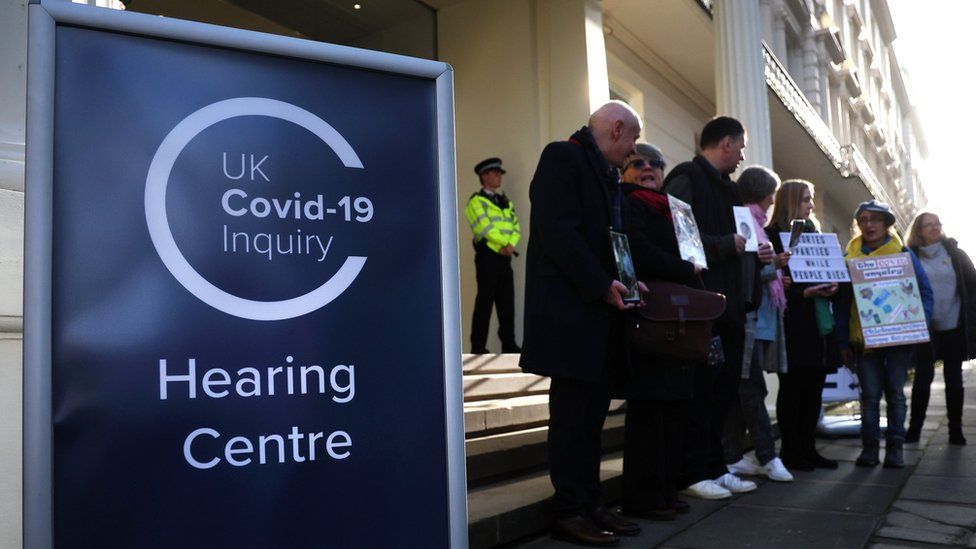ARTICLE AD BOX
 Image source, EPA
Image source, EPA
Bereaved families protest outside the Covid inquiry in London
By Chris Mason
Political editor, BBC News
"We cannot keep dealing with this horrific meltdown of the British state while dodging stilettos from that c***."
So wrote Dominic Cummings, Boris Johnson's most senior adviser in Downing Street, about the second most senior civil servant in the country during the Covid-19 pandemic.
Her name is Helen McNamara.
And yes - you guessed it - she is next up in front of the Covid inquiry, on Wednesday morning.
We already know what she thought about what it was like going to work at the time: "What people probably never understood was just how testy and toxic and unpleasant it got as a place to work during those periods," she told Laura Kuenssberg's State of Chaos series.
"The sense from the political team that they thought the civil service wasn't up to much. There was an awful lot of wasted energy… on internal fights, and people not getting on with each other, at a time when we ought to have been really working well together," she added.
Page one of the 115 pages of written evidence provided by Dominic Cummings - and now on the inquiry's website - rather pithily summarises a core reason for those "fights".
Just ahead of a quote from the leader of - of all things - the Apollo space programme, Mr Cummings quotes from War and Peace: "Nothing was ready for the war which everybody expected."
Quite whether it is reasonable to say everybody expected a pandemic of the type that came is rather questionable - but it illustrates directly Mr Cummings' instincts on what he sees as systemic state failure.
So, Helen McNamara will head into the Covid inquiry hearing room in Paddington in west London and will be asked what worked and what didn't, and why, as the government she was at the heart of dealt with the pandemic.
Incidentally, Mr Cummings recounted in parliament more than two years ago what he claimed Ms McNamara had said to him at the beginning of the pandemic: "I've been told for years there is a whole plan for this. There is no plan. We are in huge trouble. I think we are absolutely f*****."
Image source, UK Government
Image caption,The inquiry read out messages in which Mr Cummings aggressively criticised then senior civil servant Helen MacNamara
Let's see, as she gives her evidence, if she acknowledges this.
As she does, yards away from her will be the bereaved: the loved ones of those who died.
You don't see them on camera if you've watched any clips from the inquiry. But, just along from where reporters are seated, they are there: many clutching laminated A4 photographs of their spouse or sibling or parent, each a victim of Covid.
It is as stark a reminder as possible of what this inquiry is all about: accountability and learning lessons. We already know that in spring 2020, senior government officials spoke to Buckingham Palace to express their concerns about Boris Johnson's conduct in office.
"The perception among the political team in No10 about the failings in the system, the failings of the civil service and the failings of different institutions was so extreme, Helen McNamara has told the BBC. Their instinct, she claimed, was to "smash everything up".
"We were systematically in real trouble."
What, then, in practical terms, does she think that meant for the government's response to the pandemic?
How much worse did this make what would be - under any circumstances - a massive challenge for any government at any time?
What more will she say about the impact of the departure of her boss, the country's then most senior civil servant, Mark Sedwill, at the height of the pandemic? He and Dominic Cummings had a well-documented dreadful relationship.
And will she also express the recurring view from witnesses this week that Boris Johnson wasn't up to be being prime minister during a pandemic?
And what might she say about Rishi Sunak?
Both the prime minister and the prime minister before last will themselves appear before the inquiry before Christmas.

 1 year ago
19
1 year ago
19








 English (US)
English (US)